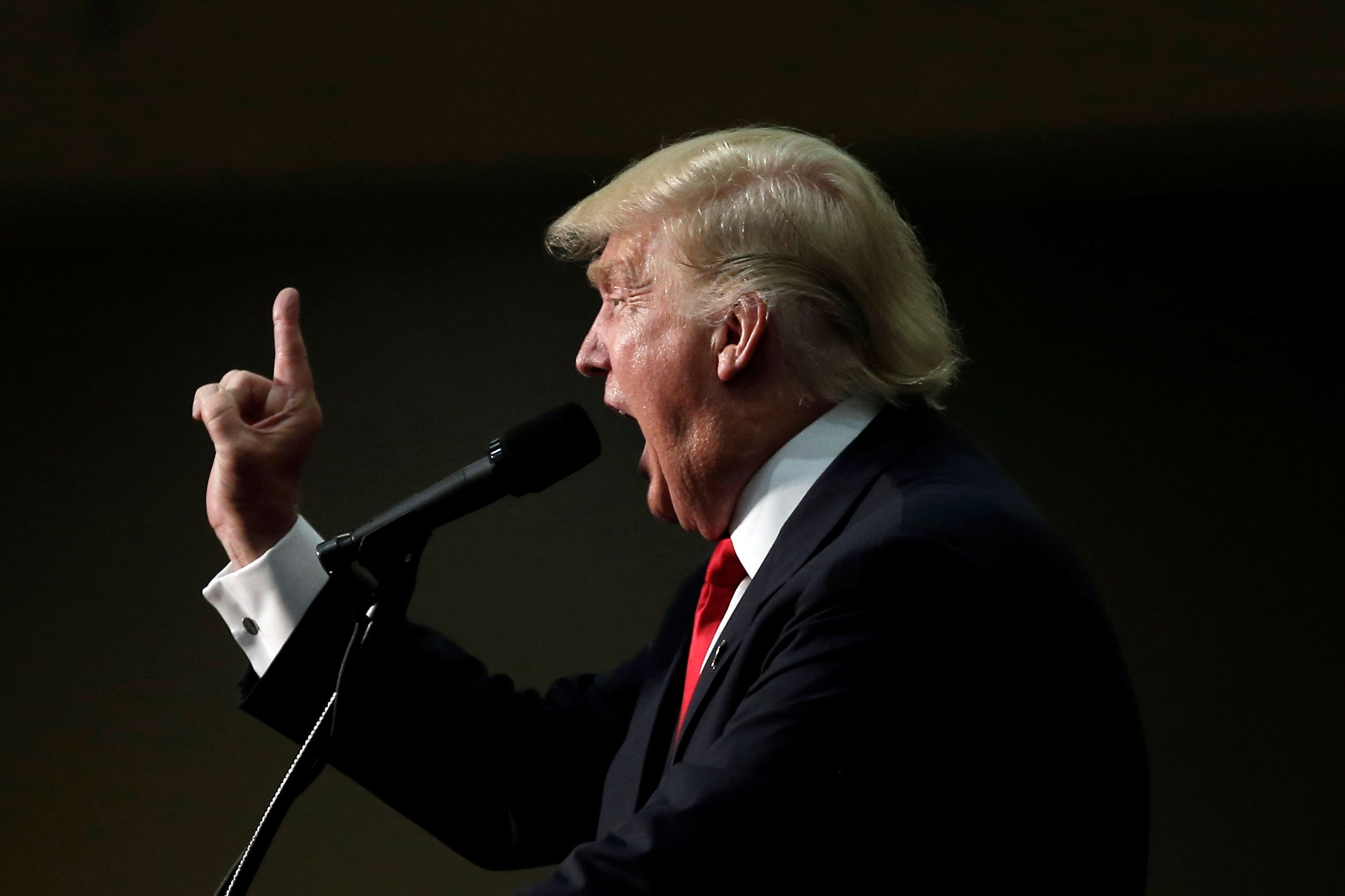
WASHINGTON (Reuters) - Republican presidential candidate Donald Trump said on Monday that U.S. Federal Reserve Chair Janet Yellen was keeping interest rates low because of political pressure from the Obama administration, questioning the motives of an institution whose work hinges on maintaining its independence.
"Well, it's [the interest rate] staying at zero because she's obviously political and she's doing what Obama wants her to do," Trump told CNBC in a phone interview, saying Yellen should be "ashamed" of what she was doing to the country.
The U.S. central bank has raised interest rates just once since cutting them to zero in response to the 2008 financial crisis. The Fed has indicated it is preparing for a second hike of 0.25 percentage point, although it has signalled the pace of future rate rises will be slower than in the past.
"Any increase at all will be a very, very small increase because they want to keep the market up so Obama goes out and let the new guy...raise interest rates...and watch what happens in the stock market," Trump said.
He did not specify how the Democratic president had put pressure on Yellen.
While Yellen has met with Obama, the Fed as an institution is independent when it comes to raising or lowering rates, and both Yellen and other rate-setters have said the Fed has no view on the November 8 election.
The Fed's Washington-based board had no comment on Trump's remarks, though regional Federal Reserve bank presidents said during public appearances that politics do not enter into Fed deliberations.
Minneapolis Federal Reserve President Neel Kashkari responded in a later interview on CNBC by denying that politics influenced Fed policymaking.
"Politics simply does not come up," he said. "We look at the economic data and...everyone around the table is committed to achieving our dual mandate" of maximum employment and stable prices, Kashkari said.
Atlanta Fed President Dennis Lockhart, asked about political pressure on the Fed at a National Association for Business Economics conference in Atlanta, said, "I don't see the world that way."
Trump's comments mark a back-and-forth by the candidate over whether he feels low rates are good or bad. He has accused the Fed of keeping rates low at Obama's behest, but at other times has said he felt lower rates were good because higher rates would make the dollar stronger, hurting American exports and manufacturers.
As a businessman, he said, "I love low interest rates," but said they hurt many people who were living on their savings.
Steering Clear of Politics
Typically, Fed officials steer clear of politics in their public remarks, and argue that doing so is important for the Fed to maintain the independence it needs to set monetary policy.
The moments when the line is publicly breached, such as former Chair Alan Greenspan's endorsement of a Bush administration tax cut, are rare and can provoke a quick backlash.
Though the members of the Fed's Board of Governor's are appointed by the president with Senate confirmation, their long, 14-year terms and staggered appointment dates are designed to insulate them from the sort of pressure Trump alleges.
The chair, considered one of the most powerful positions in setting U.S. economic policy, is picked from the board members for a four-year term. Yellen's would expire in 2018, and Trump has previously said he would consider replacing her.
The Fed's marching orders, however, come from Congress, which has set the central bank's mandate.
The Fed lowered interest rates to near zero in response to the 2007-2009 financial crisis, and has increased them only once since then—in December—given the sluggish pace of the recovery.
Fed members and economists have vigorously debated the issue Trump raised—whether easy-money policies have led to an unsustainable rise in asset prices. But there has been even more concern about weak growth, weak inflation, and the need to keep financial conditions loose to try to ensure businesses keep hiring.
Uncommon Knowledge
Newsweek is committed to challenging conventional wisdom and finding connections in the search for common ground.
Newsweek is committed to challenging conventional wisdom and finding connections in the search for common ground.
About the writer
To read how Newsweek uses AI as a newsroom tool, Click here.








